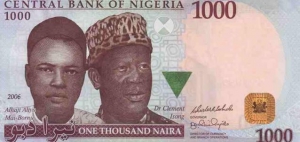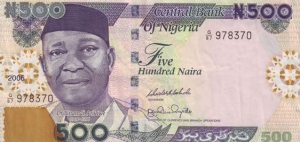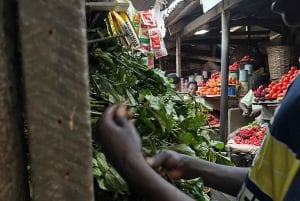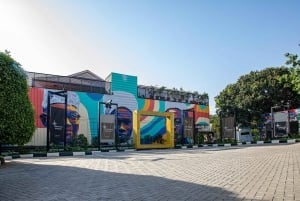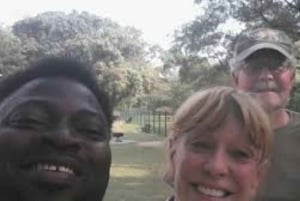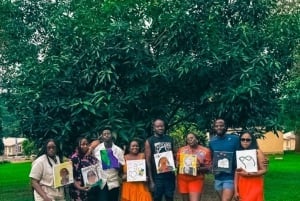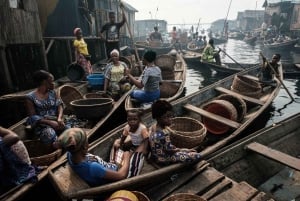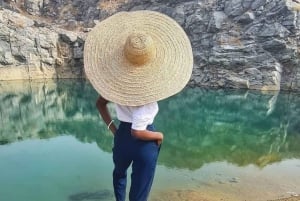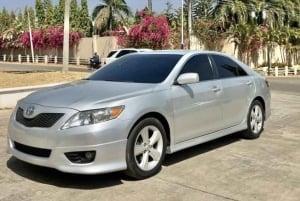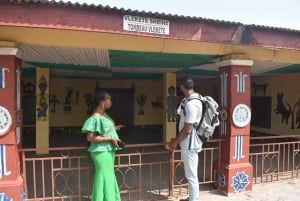Currency and Unit Converter
Naira and Kobo are the names of Nigeria's currency. One Naira is divided into 100 Kobo.
The sign for the Naira is ₦, and its symbol or code is NGN.
The notes come in different denominations with the portraits of notable personalities, past governors, presidents and nationalists on the front and on the reverse are notable landmarks and cultural symbols. The appearance of the notes are as follows: ₦1000 (brown and multicolour), ₦500 (purple and multicolour), ₦200 (green and multicolour), ₦100 (red and multicolour), ₦50 (blue), ₦20 (green), ₦10 (brown), ₦5 (mauve). Coins are no longer in circulation in the country as the acceptance level was very minimal at the time they were re-introduced.
The notes you may find most use for, and that are generally more available are:
|
|
Sterling* |
US Dollar* |
EU Euro* |
|
Fifty Naira Note |
£0.20 |
$0.30 |
€0.25 |
|
Hundred Naira Note |
£0.40 |
$0.63 |
€0.50 |
|
Five Hundred Naira Note |
£2.00 |
$3.16 |
€2.50 |
|
One Thousand Naira Note |
£4.00 |
$6.32 |
€5.00 |
*approximate conversions
In Nigeria, as a general rule of thumb, Naira is the only accepted currency to buy and sell with. Unfortunately it is not that easy getting hold of Naira when outside of Nigeria. It's best to travel to Nigeria with US dollars, UK Sterling or Euros and change what you need into Naira on arrival (please note all other currencies may prove difficult to change once you arrive).
Something else to be aware of, with regards to currency conversion, is that you can't exchange currency at the local banks over the counter. The accepted method of exchanging dollars, pounds or euros is using the parallel market, or black maket as it's commonly known. Exchanging money is generally safe and easy once you can find a bureau de change operative, and their exchange rates are slightly higher than those officially advertised at banks. Try travelling with large denominations in notes for a better exchange rate.
Finding a black market operative can be tricky depending on where you are. It's best to exchange currency at the airports where the operatives congregate and haggle for business, or better still with the bureau de change. You can sometimes find them at hotels, but the rates may not be as favourable as those at the airport.
When exchanging money in Nigeria, remember to be safe and vigilant, espcecially if exchanging money on the streets. If possible, insist on going into the operative's office. Try not to go on your own - have a friend or someone else with you. It is normally expected that you count out the converted money before leaving.
A tip is to collect the details of a black market operative, his name and phone number should do. So if you need to carry out a currency exchange in the future you now have what we call a 'customer' who you can deal with, making the whole transaction much easier.
It is now commonplace to have pre-paid credit cards which can be used at many ATMs within Nigeria.
When converting money it might be a good idea to have a variety of the local denomination. Depending on how generous your disposition is you may find yourself doing a lot of tipping, or 'dash' as the locals would say. You'll also need the lower denominations to buy small items like a bottle of water, or taxi/bus ride. Try to always have the following in various quantities: N20, N50, & N100.


